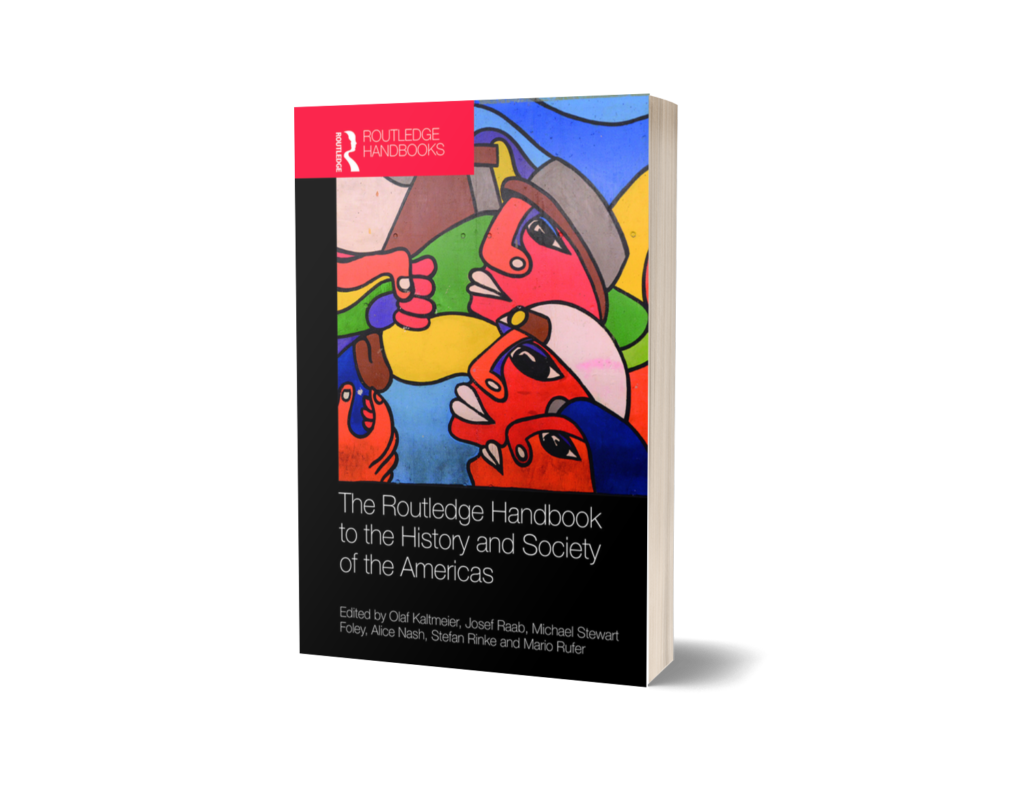Routledge Handbook to the History and Society of the Americas
Co-edited with Olaf Kaltmeier, Josef Raab, Alice Nash, Stefan Rinke, and Mario Rufer
The colonial heritage and its renewed aftermaths – expressed in the inter-American experiences of slavery, indigeneity, dependence, and freedom movements, to mention only a few aspects – form a common ground of experience in the Western Hemisphere. The flow of peoples, goods, knowledge and finances have promoted interdependence and integration that cut across borders and link the countries of North and South America together. The nature of this transversally related and multiply interconnected region can only be captured through a transnational, multidisciplinary, and comprehensive approach.
The Routledge Handbook to the History and Society of the Americas explores the history and society of the Americas, placing particular emphasis on collective and intertwined experiences. Forty-four chapters cover a range of concepts and dynamics in the Americas from the colonial period until the present century:
- The shared histories and dynamics of Inter-American relationships are considered through pre-Hispanic empires, colonization, European hegemony, migration, multiculturalism, and political and economic interdependences.
- Key concepts are selected and explored from different geopolitical, disciplinary, and epistemological perspectives.
- Highlighting the contested character of key concepts that are usually defined in strict disciplinary terms, the Handbook provides the basis for a better and deeper understanding of inter-American entanglements.
This multidisciplinary approach will be of interest to a broad array of academic scholars and students in history, sociology, political science cultural, postcolonial, gender, literary, and globalization studies.

